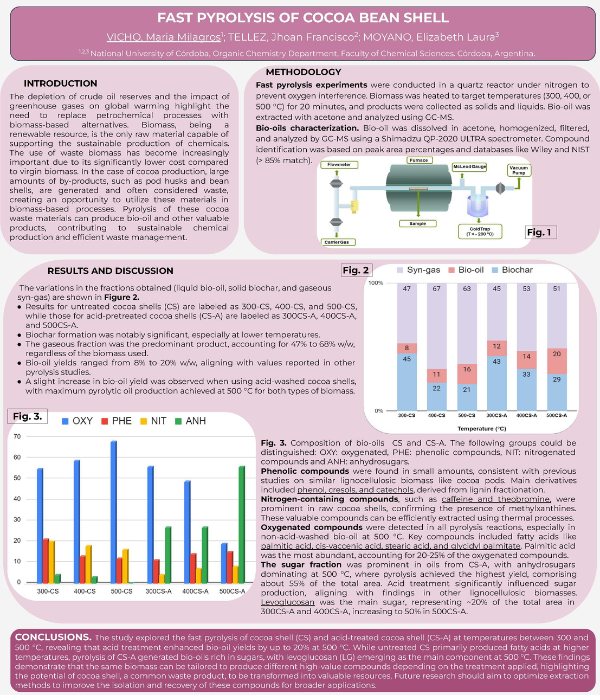
The increasing demand for sustainable waste utilization has led to a growing interest in cocoa shell as a valuable biomass resource. This study investigates the pyrolysis of cocoa shell, both untreated and acid-washed, at temperatures of 300, 400, and 500 °C to extract valuable compounds. Utilizing nitrogen as the pyrolysis atmosphere, we aimed to optimize conditions for the production of bio-oil enriched in valuable compounds. The resulting bio-oils were analyzed using gas chromatography-mass spectrometry (GC-MS), revealing significant yields of fatty acids, including tetradecanoic acid, cis-vaccenic acid, and pentadecanoic acid. Notably, acid-washed cocoa shell exhibited higher bio-oil yields compared to untreated samples, with the optimal temperature of 500 °C yielding the highest concentration of these fatty acids. Additionally, in the acid-treated biomass, a high concentration of sugars was found, particularly levoglucosan, which accounted for over 50% at 500 °C. The findings suggest that the pyrolysis of cocoa shell, especially when pretreated with acid, not only provides a means of waste valorization but also generates bio-oil and biochar with promising properties for health and environmental applications. This research underscores the importance of exploring agricultural residues like cocoa shells for sustainable bioresource development.